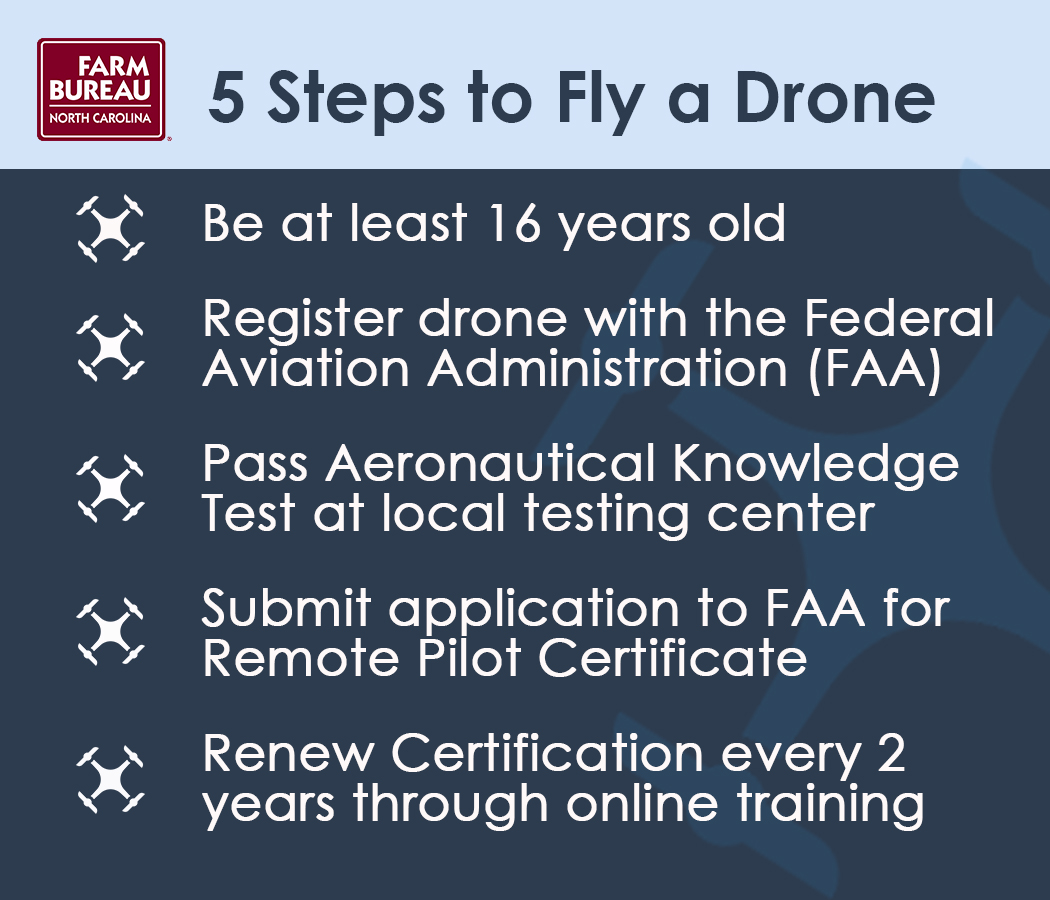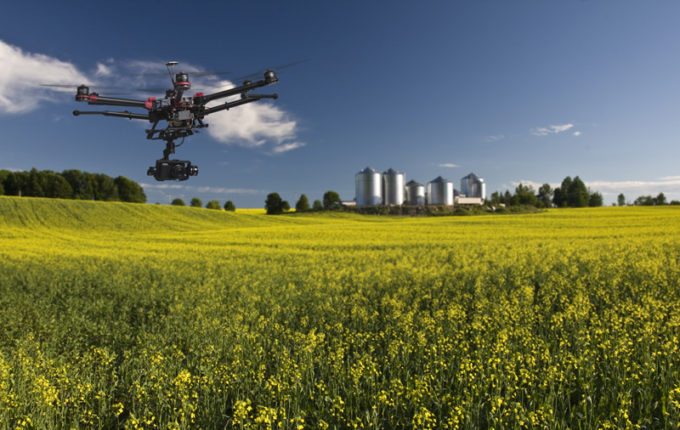What is a drone? Where can I fly one? Do I need a license? Can I shoot one down if it flies over my house? These are all frequent questions people ask about Unmanned Aircraft Systems (UAS), commonly known as drones. (If you don’t read any further, no, you should not shoot them down.)
Basically, a drone is a remote controlled aircraft, usually equipped with a camera and/or other sensors. The technology has become increasingly popular over the past few years and more people are beginning to utilize drones for things like data collection, photography, videography, and monitoring personal property.
But this is an agriculture blog, right? So why are we talking about drones? Well as it turns out, agriculture is one of the most promising markets for drone technology. In fact, the Association for Unmanned Vehicle Systems International estimates that farms will eventually account for an 80% share of the commercial drone market.
Farmers use drones to scout crops, observe livestock, and map fields, among other things. Sensors and cameras fixed on the aircraft allow farmers to recognize problems they would not be able to see from a ground position. In short, drones are a useful tool to efficiently and cost-effectively supervise farm operations from a bird’s eye view.
In response to the growing popularity of drones, the Federal Aviation Administration (FAA) recently issued new rules, which take effect on August 29th, governing the commercial use of small drones weighing less than 55 pounds. In total, there are hundreds of pages of rules, but here are some highlights.
 Before flying a drone, prospective users must satisfy a few requirements. First, a drone pilot must be at least sixteen years of age and demonstrate both the physical and mental capabilities to safely operate the drone. To measure these qualifications, the FAA requires would-be pilots to pass an aeronautical knowledge test and submit an application for a Remote Pilot Certificate. This test and certification costs approximately $150 per person. (Local testing centers can be accessed here: Knowledge Testing Centers) Drone users must also register their drones with the FAA and they must renew their certification every two years through an online training course.
Before flying a drone, prospective users must satisfy a few requirements. First, a drone pilot must be at least sixteen years of age and demonstrate both the physical and mental capabilities to safely operate the drone. To measure these qualifications, the FAA requires would-be pilots to pass an aeronautical knowledge test and submit an application for a Remote Pilot Certificate. This test and certification costs approximately $150 per person. (Local testing centers can be accessed here: Knowledge Testing Centers) Drone users must also register their drones with the FAA and they must renew their certification every two years through an online training course.
In addition to these preliminary steps, the drone operator (or “remote pilot in command,” in legal terms) must comply with several flight restrictions. For example, pilots must fly the drone within eyesight and may only fly during daylight hours. The FAA also places a 400-foot ceiling on most drone flights, forces pilots to yield to other aircraft, and prohibits flying drones in excess of 100 mph. Further, drones cannot be flown over people who are not involved in the flight mission. In other words, the rules put safety first when it comes to operating a drone.
But there are other concerns associated with drone use, most notably privacy protections. In reality, there are few privacy protections against flights over private property. According to North Carolina law, an aircraft may be flown above private property, as long as the flight does not interfere with the use of the land below. Although drones are technically aircraft, they have a unique ability to hover for long periods of time, they are more maneuverable than traditional aircraft, and they are harder to detect. Noting the differences between traditional aircraft and drones, the North Carolina General Assembly decided a couple of years ago to place some restrictions on drone flights conducted over private property. Accordingly, it is illegal to use drones for surveillance purposes in North Carolina. If a property owner is concerned about drones surveying their land, the property owner should keep record of the incident and alert the appropriate authorities. Under certain circumstances, the property owner may also be able to bring a lawsuit in state court.
As technology advances and more people use drones in federal air space for personal and commercial purposes, federal air traffic safety rules and state-level privacy protections will need to be refined. Farm Bureau will continue to be involved as the debate around the use of drones continues.

